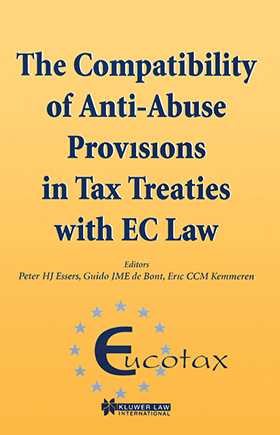In the intricate world of international taxation and trade, the European Union (EU) stands as a prominent player, wielding significant influence through its agreements and treaties. One of the critical aspects of these agreements is the incorporation of anti-treaty abuse provisions. These provisions are designed to prevent the exploitation of treaties for tax evasion and avoidance purposes. As the global economy becomes increasingly interconnected, understanding the impact of these provisions is essential for policymakers, businesses, and academics alike. This article delves into the nature of anti-treaty abuse provisions in EU agreements, analyzing their effectiveness and exploring their broader implications.
Analyzing Anti-Treaty Abuse Provisions in the EU
Anti-treaty abuse provisions are mechanisms embedded within EU agreements to curb the misuse of treaties that can lead to tax evasion or avoidance. These provisions typically take the form of clauses that deny treaty benefits if transactions are primarily aimed at tax avoidance. The EU’s approach to these provisions is influenced by the OECD’s Base Erosion and Profit Shifting (BEPS) project, which emphasizes the need for comprehensive and robust measures to prevent treaty abuse. By aligning with international standards, the EU aims to create a unified front against tax avoidance, ensuring that treaties serve their intended purpose of facilitating legitimate economic activities.
The implementation of anti-treaty abuse provisions varies across different EU agreements, reflecting the complexities of international negotiations and the diverse tax landscapes of member states. These provisions can be found in bilateral treaties between EU member states and third countries, as well as in multilateral agreements involving the EU as a whole. The effectiveness of these provisions largely depends on their design and the willingness of signatory parties to enforce them. A well-crafted provision must balance the need to prevent abuse with the necessity of maintaining an attractive environment for cross-border investment and trade.
Critics argue that the complexity and diversity of anti-treaty abuse provisions can lead to uncertainty and increased compliance costs for businesses. This complexity arises from the need to tailor provisions to fit the specific legal and economic contexts of different agreements. As a result, businesses may face challenges in navigating these provisions, potentially deterring investment and hindering economic growth. However, proponents assert that the long-term benefits of preventing tax avoidance and ensuring fair competition outweigh the short-term challenges associated with compliance.
Exploring Their Effectiveness and Implications
The effectiveness of anti-treaty abuse provisions in EU agreements is a subject of ongoing debate among policymakers, academics, and industry stakeholders. On one hand, these provisions have been successful in raising awareness about treaty abuse and prompting countries to adopt stricter anti-abuse measures. By setting a high standard for treaty negotiations, the EU encourages both member and non-member states to prioritize transparency and accountability in their tax policies. This, in turn, contributes to a more equitable global tax system, where countries can compete on a level playing field.
On the other hand, measuring the direct impact of anti-treaty abuse provisions remains challenging. While these provisions are designed to deter abusive practices, their success in doing so is often difficult to quantify. The effectiveness of such provisions may vary depending on the commitment of individual countries to enforce them and the resources available for monitoring compliance. Additionally, the dynamic nature of international trade and taxation means that new forms of treaty abuse can emerge, necessitating continuous updates and revisions to existing agreements.
The implications of anti-treaty abuse provisions extend beyond their immediate impact on tax policy. These provisions play a vital role in shaping the global perception of the EU as a leader in promoting fair and transparent international trade practices. By championing the fight against treaty abuse, the EU reinforces its commitment to ethical governance and sustainable economic development. This stance not only influences the behavior of multinational corporations but also encourages other regions to adopt similar measures, fostering a collaborative approach to addressing tax avoidance on a global scale.
In conclusion, anti-treaty abuse provisions in EU agreements serve as crucial tools in the fight against tax avoidance and evasion, reflecting the EU’s commitment to fair and transparent international trade. While the complexity of these provisions poses challenges, their role in promoting accountability and leveling the playing field cannot be understated. As the EU continues to refine its approach to treaty abuse, the ongoing dialogue among stakeholders will be essential in ensuring these provisions remain effective and relevant in the face of evolving economic landscapes. Ultimately, the success of these measures will depend on the collective efforts of the international community to uphold the principles of fairness and integrity in global taxation.
